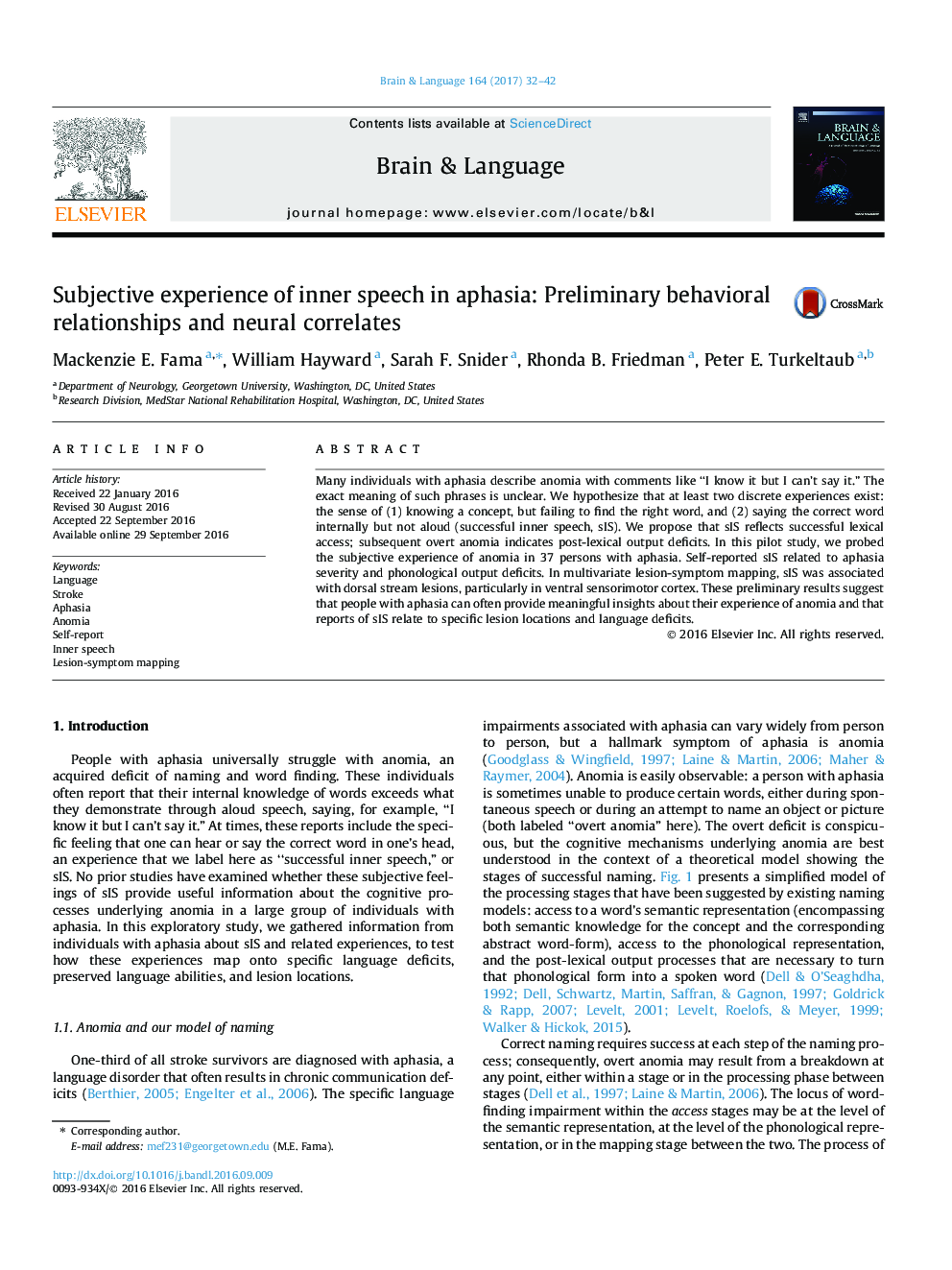| Article ID | Journal | Published Year | Pages | File Type |
|---|---|---|---|---|
| 5041293 | Brain and Language | 2017 | 11 Pages |
â¢People with aphasia often report that they can say words internally, but not aloud.â¢We find “successful inner speech” (sIS) appears distinct from other anomic experiences.â¢Self-reported sIS correlates with anomia severity and phonological output deficits.â¢Lesion-symptom mapping relates reports of sIS to ventral sensorimotor lesions.â¢Results suggest that sIS in anomia may relate to post-lexical output deficits.
Many individuals with aphasia describe anomia with comments like “I know it but I can't say it.” The exact meaning of such phrases is unclear. We hypothesize that at least two discrete experiences exist: the sense of (1) knowing a concept, but failing to find the right word, and (2) saying the correct word internally but not aloud (successful inner speech, sIS). We propose that sIS reflects successful lexical access; subsequent overt anomia indicates post-lexical output deficits. In this pilot study, we probed the subjective experience of anomia in 37 persons with aphasia. Self-reported sIS related to aphasia severity and phonological output deficits. In multivariate lesion-symptom mapping, sIS was associated with dorsal stream lesions, particularly in ventral sensorimotor cortex. These preliminary results suggest that people with aphasia can often provide meaningful insights about their experience of anomia and that reports of sIS relate to specific lesion locations and language deficits.
